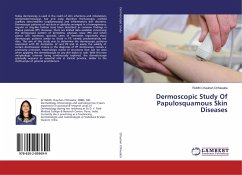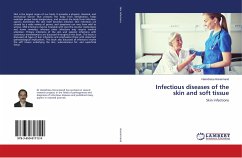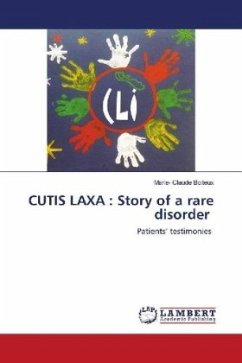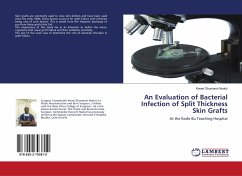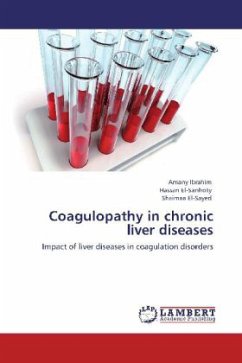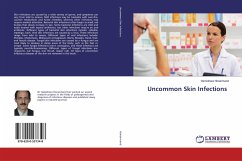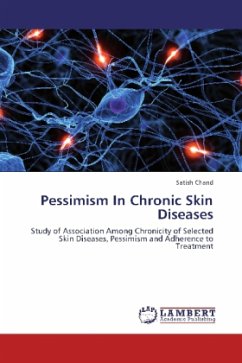
Pessimism In Chronic Skin Diseases
Study of Association Among Chronicity of Selected Skin Diseases, Pessimism and Adherence to Treatment
Versandkostenfrei!
Versandfertig in 6-10 Tagen
32,99 €
inkl. MwSt.

PAYBACK Punkte
16 °P sammeln!
In the present study, it was hypothesized that chronic and relapsing nature of a disease may initiate and perpetuate pessimistic thinking in the patients. Such patients, who develop helplessness and hopelessness, may, in turn, poorly adhere to the management plan. This will consequently lead to inferior treatment outcome and, as a result, aggregation of the disease. Thus, the patient may enter a vicious cycle, which has profound negative impact on his life. The phenomenon, which Seligman called learned helplessness, ultimately may lead to abandonment of efforts by the individual in other areas...
In the present study, it was hypothesized that chronic and relapsing nature of a disease may initiate and perpetuate pessimistic thinking in the patients. Such patients, who develop helplessness and hopelessness, may, in turn, poorly adhere to the management plan. This will consequently lead to inferior treatment outcome and, as a result, aggregation of the disease. Thus, the patient may enter a vicious cycle, which has profound negative impact on his life. The phenomenon, which Seligman called learned helplessness, ultimately may lead to abandonment of efforts by the individual in other areas of life as well. In view of the above hypothesis, the present study was planned with the following objectives. a) To investigate whether the chronicity of the skin disease is associated with pessimism. b) To investigate whether there is association between the amount of body surface area involved by a disease and pessimism c) To study whether exposed site involvement by a disease is associated with pessimism. d) To study whether pessimism is associated with poor adherence to treatment plan.




